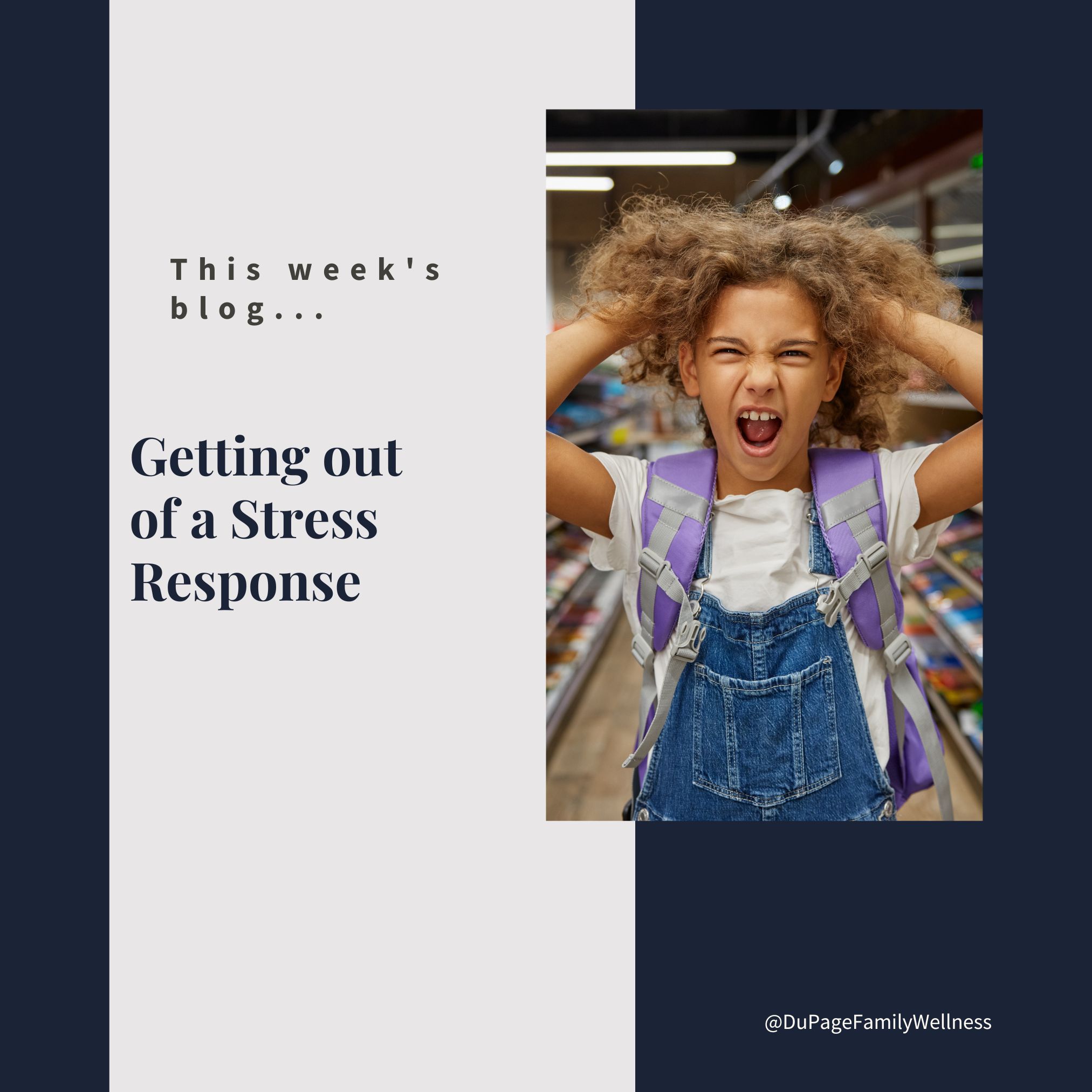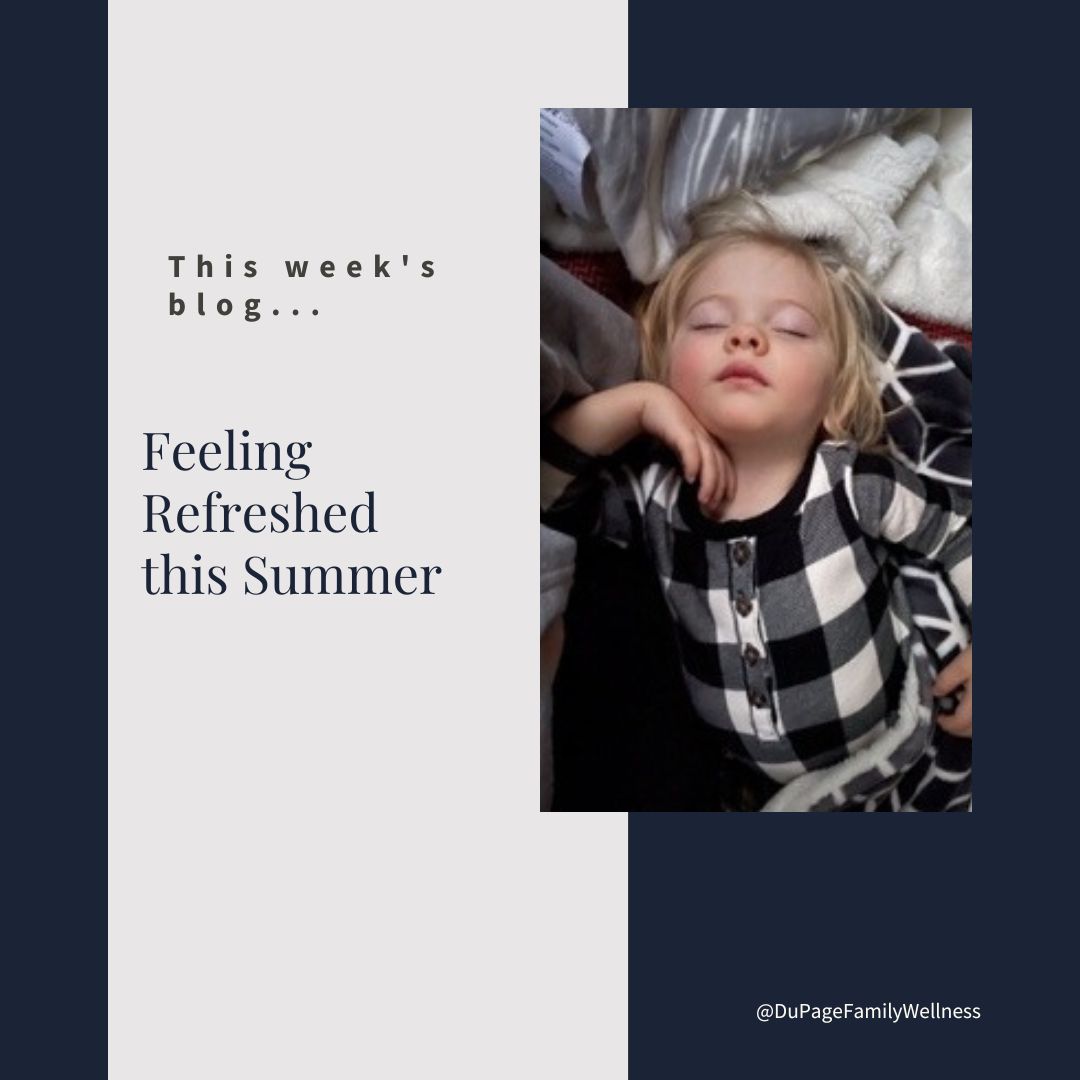
Do you enjoy having an alcoholic drink with friends or relaxing with a glass of wine in the evening? While there is nothing wrong with an occasional drink, it is important to understand how it impacts the body. This is especially important regarding women's hormones.
Women have a complicated balance of hormones that are easily impacted by alcohol. If there are already concerns with your hormones, you may want to pay close attention to the information presented.
This is not a moral issue. I just want to give you knowledge, so you can make an informed decision that is right for you. Know that this is a safe space. You can talk to me about this and anything else related to your health.
Let’s look at how different hormones are impacted by alcohol.
What Are Hormones?
Hormones are chemical messengers within the body that are secreted by glands in the endocrine system. They tell the tissue and organs in the body what to do. The proper balance of hormones is crucial for your physical and mental health.
When something happens to make one hormone increase the other hormones are affected. It's like a delicate dance with some hormones following another's lead.
Alcohol’s Impact on Hormones
Let’s take a look at some of the ways moderate alcohol impacts this system.
- Estrogen - alcohol raises the estrogen levels in the body because it contains estrogenic compounds, increases enzymes that convert testosterone to estrogen, and makes the liver less effective in detoxing estrogen.
- Cortisol - moderate alcohol consumption impacts sleep quality which increases cortisol which is a stress hormone.
- Thyroid hormones - the increase in estrogen levels prevents the thyroid from releasing normal amounts of hormones, and the rise in cortisol makes the body less effective in converting the thyroid hormone T4 into T3.
- Testosterone - alcohol decreases testosterone levels in men by lowering the coenzyme NAD+ which is used in the production of testosterone.
- Progesterone - estrogen and progesterone have an inverse relationship, so as estrogen increases, progesterone decreases.
- Insulin - alcohol may increase insulin resistance and hinder the body’s ability to process sugar.
Implications for Women
Knowledge about our body can help us make wise decisions. People's relationship with alcohol can be quite complex. How much and how often to drink is a personal decision based on your body and situation.
For example, a woman who is already dealing with estrogen dominance may choose to be more cautious than someone who does not struggle with the issue. Signs of estrogen dominance include difficult periods, PMS, PCOS, fibroids, endometriosis, breast pain, headaches, depression, hair loss, and weight gain.
Other women who may want to think carefully about their alcohol consumption are those who are dealing with issues of fertility. Since proper hormone balance is crucial for conception, women may wish to limit their alcohol consumption, especially during the week leading up to ovulation.
As always, please feel free to bring your questions to me. I want to empower you with the knowledge you need to make decisions you feel good about.
Dr. Jamie

When you have healthy boundaries, you make choices that are right for you rather than basing them on pressure or guilt from others. This may include turning people down for things that do not work for your schedule or do not align with your values. It may even include things you just do not want to do.
Boundaries also clarify how you allow yourself to be treated. You can not control anyone else's behavior, so boundaries focus on how you respond. It may sound like, “Please speak respectfully; I will walk away from you if you yell at me.”
Author Prentis Hemphill says, “Boundaries are the distance at which I can love you and me simultaneously.” They are where you honor yourself by considering your needs. In return, this protects your peace and guards your relationships from resentment.
Let’s look at ways to embrace boundaries in our lives.
Making Commitments
Saying ‘yes’ to something means saying ‘no’ to something else. We have limited resources (financially, physically, and even emotionally). So, think about what you want to give before committing.
Healthy boundaries that lower stress may look like…
- limiting the time you spend with certain people or activities
- negotiating a more balanced approach to responsibilities at home
- saying ‘no’ to a request for help
- refusing to loan items or money
- turning down a promotion
- resigning from clubs or positions
- not signing up for extra requests
Communicating Expectations
It can seem like a boundary to tell someone how you want to be treated, but that is just a request. Boundaries may include a request but also state what your response will be if the request is not honored.
Healthy boundaries in relationships may include telling someone that you will…
- not continue a conversation if they swear
- leave the house if they are drinking excessively
- not lie for them if they miss work or school
- take some time away from the relationship if they try to manipulate you
- not spend time with them if they lie about you
Practical Notes
Many people think focusing on our needs and desires is selfish. Our culture and homes often teach us to put other people's needs ahead of our own. While there are times we may choose to do that, it should not be your automatic response. You do not need to justify yourself when saying ‘no.’ There may be a specific reason or you might just not want to do something. Either way is legitimate. Staying home to relax is as good a reason to decline a request as a work obligation.
Boundaries are only as effective as your actions. Letting someone guilt you into changing your mind will only encourage them to pressure you in the future. When people treat you poorly, following through with what you said you would do may encourage them to change their treatment of you in the future. You cannot change the other person, but you can change your responses to them in ways that will support your well-being.
Read more ...
 During times of stress, our bodies are designed to go into a state of fight, flight, or freeze. This stress response is beneficial during times of crisis, giving us the best chance of survival. After the threat has passed, we are supposed to transition back to a more relaxed state.
During times of stress, our bodies are designed to go into a state of fight, flight, or freeze. This stress response is beneficial during times of crisis, giving us the best chance of survival. After the threat has passed, we are supposed to transition back to a more relaxed state.
It is not healthy to stay in an acute stress response for extended periods. Inflammation, poor digestion, high blood pressure, and increased glucose levels may result. Systems in your body are burdened, and your immune system's response will be negatively impacted.
Many of us deal with chronic stress and need strategies to increase our capacity to handle it. Let’s look at some stress management techniques that you can use to regulate your nervous system and stay balanced.
Enjoyable Activities
Life-giving activities ease stress. Find things you enjoy that are realistic for your resources (time, money, etc.). Aim for things you can do every day.
You might want to…
- go for a walk
- snuggle up with a book
- take deep breaths of fresh air
- listen to bird noises or other natural sounds
- lay on the floor stretching
- play with a pet
- savor a small piece of dark chocolate
- sit in silence
- listen to music
- spend time with those you enjoy
- get a drink of water or make a cup of tea
For more information check out Self-Care for Everyone.
Social Connection
Positive social connections reduce stress and activate the parasympathetic nervous system. This is often referred to as co-regulation of the nervous system and is where healing occurs.
So, connect with others; you can…
- get together with a friend
- call your loved ones
- use video calls to be face-to-face with those who live at a distance
- text someone you’ve been thinking about
- smile at those you walk by throughout the day
- get to know your co-workers
- join a club (sports team, book club, religious organization, etc.)
For more information check out Social Connection & Its Impact on Physical Health.
Practice Gratitude
Feelings of gratitude activate the hypothalamus and flood the system with dopamine. It decreases the stress hormone cortisol and lowers your blood pressure.
We can cultivate gratitude by noticing what brings us contentment or joy. You might feel grateful for…
- friends or family
- jobs that provide for your needs
- fresh air and time in nature
- items that bring you comfort
- opportunities for growth
- basic needs being met
- safe areas to live
For more ideas on gratitude check out Creating a Gratitude Practice.
Grounding
Bring your awareness back to the present by drawing your attention to your body and surroundings. This helps with stress because most concerns are about the past or future.
Read more ...
 Enjoying your summer starts with a good night’s rest. Feeling refreshed helps you savor the moments of pleasure in each day. It gives you the energy to have adventures and have fun with the people you love.
Enjoying your summer starts with a good night’s rest. Feeling refreshed helps you savor the moments of pleasure in each day. It gives you the energy to have adventures and have fun with the people you love.
When you are short on sleep, it is difficult to enjoy the special moments. You may feel irritable with the people around you for "no reason." This can leave you wondering what is wrong with you. But, maybe it doesn't have anything to do with you; maybe it is your sleep habits.
Let's look at some tips to get you quality sleep that will leave you feeling refreshed.
Tips for a Good Night
Making the most of the time you sleep will help you feel more rested. Having good sleep hygiene will make a big difference. Here are some ideas to get you started…
- Morning Light - get bright light in the morning. It is the most important habit for getting a good night’s sleep. The morning light helps reset your circadian rhythm setting you up for quality sleep.
- Bedroom Environment - sleep in a cool, dark room with black-out curtains. Cover electronics that emit light. Keep it quiet or consider a sound machine. Only use your bedroom for sleep and sex.
- Light Exposure - minimize screen time for three hours before bed, use blue light glasses, or consider a program like F.lux. Dim the lights to prepare your body for sleep as bedtime gets closer.
- Daytime Movement - take the stairs, use a standing desk, take time to stretch, or exercise to keep from being sedentary during the day.
- Nutrition - You may sleep better with a lighter dinner or a bedtime snack. Generally, you will benefit from not being overly full or hungry. Be sure your diet isn’t too low carb or low fat.
- Caffeine & alcohol - these interfere with your circadian rhythm. Limiting them, especially later in the day, will help you sleep better at night.
- Stress - deep breathing, meditation, yoga, or even getting together with friends may help you deal with stress.
- Comfortable Bed - invest in a quality bed. Lack of sleep can harm your body, so don’t feel bad spending more to get something nice if you can.
- Waking During the Night - Dr. Kristen Allott recommends keeping a “lizard brain treat” by your bed if you wake up at night. Look at her website for more information.
Sleep hygiene is important, but no amount of sleep hygiene will help if you don’t allow enough time for sleep! Author and professor Mathew Walker says, “You have more of a chance of being struck by lightning than you do of being in that tiny, tiny minority of people that can thrive with fewer than 7 ½ to eight hours of sleep.”
Check out "Are You Getting Enough Sleep" to see if you are giving yourself enough rest each night.
Enjoy your summer activities by getting enough quality sleep. When you feel refreshed, everything is better.
Dr. Jamie
 Getting enough “white space” in your day will strongly impact how much you enjoy the summer. The summer is supposed to be a time to relax, but often becomes filled with activities and obligations.
Getting enough “white space” in your day will strongly impact how much you enjoy the summer. The summer is supposed to be a time to relax, but often becomes filled with activities and obligations.
Spending time at the pool, taking a hike, or attending a barbeque might not seem like work; but even enjoyable things take time and energy. It can become overwhelming if we do not balance them with downtime.
If you think you are too busy for white space, this may be when you need it the most. It is possible to incorporate white space in everyday life; it just takes some intention.
Let’s look at practical things you can do this summer to make room for white space.
What is White Space?
Leo Babauta from Zen Habits explains that white space means you “remove non-essential items from your life, your workday, your surroundings, your possessions, and leave the essential items with space around them.”
White space does not tend to happen on its own. While it is not complicated, we need to create it intentionally. Here are some ideas about how to make white space a reality in your life.
Schedule
Saying ‘yes’ to one thing is saying ‘no’ to something else. There are only so many hours in the day, so think before you commit.
Ask yourself if you have the capacity for the event. Including the time to prepare, drive, clean up, and wind down from the event. Recognize that a two-hour event may become a four-hour commitment if you consider what leads to and follows it.
Guard your time for the things that make you feel good. It is legitimate to decline an invitation because you do not want to do something; you do not have to explain yourself. Your plans to stay home relaxing, reading, or doing a project are valid reasons to decline.
If you have trouble declining offers, read this article's “15 Best Ways to Say No” list.
Workday
Get a clear picture of important tasks and a realistic idea of how long they will take. Base this on a steady pace, not a frantic one. Communicate this with others on your team as well as your boss. If you feel overwhelmed, ask for help and delegate tasks when appropriate.
Minimize distractions by having boundaries with your coworkers. Don’t be afraid to tell them you are in the middle of something now but are glad to meet later in the day.
Focus on one task at a time when you can; try not to multi-task. Keep your desk clean and clutter-free (this is not my strong point). Take short breaks throughout the day even if it’s just stretching or taking a few deep breaths.
Surroundings
In your home, keep tables, counters, and other flat surfaces clear. Minimize decorations to prevent them from overwhelming your space. Make a cozy spot where you relax, and let others know when you need time there by yourself.
Get in the habit of taking everything that does not belong out of your car whenever you finish an errand. If you have a spouse or children, engage their help in keeping it clean. Keep a microfiber cloth in your car for quick wipe-downs.
Organize your screen phone by putting most of your apps in folders. Simplifying your home screen makes it easier to find what you need and eliminates the visual clutter. We view the home screen on our phones multiple times a day, so it can make a bigger difference than you make expect.
Read more ...
 Let’s hope you are not above average, or even average because the average adult in America spends over 2 hours on social media each day (1). If this is true for you, you are spending the equivalent of 32 days a year on social media.
Let’s hope you are not above average, or even average because the average adult in America spends over 2 hours on social media each day (1). If this is true for you, you are spending the equivalent of 32 days a year on social media.
That’s equivalent to over 4 ½ weeks on these platforms each year. This might seem impossible, but if you track your usage it is surprising how quickly it adds up. Even social media proponents would have difficulty justifying the hours spent on them.
Despite the benefits of these platforms, many believe overusing them is detrimental to our well-being. Since there are limited hours in the day, we must question what we are missing out on while online and ask ourselves if real-life experiences would be better for our well-being.
Let’s consider the value and cost of social media in your life.
Quiz
It is helpful to get an objective perspective on your social media consumption. The health and wellness website, Balanced, provides a valuable tool. It is the “Are You Addicted to Social Media?” quiz. It provides a framework to consider how much time you spend on these platforms and how they impact your life.
In my opinion, the guidelines they use to determine problematic social media consumption are far too generous. I am surprised at the amount of time they believe can be healthy. Any answer higher than a “b” would concern me. Please remember that while you read the interpretation of your quiz. You can use the link here to take the quiz.
Mental Health Considerations
It is fun to connect with the friends we have in real life on social media. When used to enhance existing relationships, social media has been found to reduce loneliness. The same is true when social media is used with the motivation of forging new friendships. (2)
However, seeing the highlights of people you follow can lead to feelings of loneliness, depression, and fear of missing out. A study of 18 to 22-year-olds at Penn State University found that limiting students' social media consumption to 30 minutes a day led to “significant decreases in both depression and loneliness.” These findings were even more pronounced for those who were more depressed at the beginning of the study. (3)
Physical Connection
The connection between social media use and loneliness may indirectly impact physical health. A meta-analytic review of loneliness and social isolation found substantial evidence “that individuals lacking social connections (both objective and subjective social isolation) are at risk for premature mortality. (4)
It found “that heightened risk for mortality from a lack of social relationships is greater than that from obesity, with the risk from social isolation and loneliness (controlling for multiple other factors) being equivalent to the risk associated with Grades 2 and 3 obesity. (4)
Furthermore, the analysis quotes a report where researchers predicted loneliness will reach epidemic proportions by 2030 unless action is taken.
Read more ...




 During times of stress, our bodies are designed to go into a state of fight, flight, or freeze. This stress response is beneficial during times of crisis, giving us the best chance of survival. After the threat has passed, we are supposed to transition back to a more relaxed state.
During times of stress, our bodies are designed to go into a state of fight, flight, or freeze. This stress response is beneficial during times of crisis, giving us the best chance of survival. After the threat has passed, we are supposed to transition back to a more relaxed state.  Enjoying your summer starts with a good night’s rest. Feeling refreshed helps you savor the moments of pleasure in each day. It gives you the energy to have adventures and have fun with the people you love.
Enjoying your summer starts with a good night’s rest. Feeling refreshed helps you savor the moments of pleasure in each day. It gives you the energy to have adventures and have fun with the people you love. Getting enough “white space” in your day will strongly impact how much you enjoy the summer. The summer is supposed to be a time to relax, but often becomes filled with activities and obligations.
Getting enough “white space” in your day will strongly impact how much you enjoy the summer. The summer is supposed to be a time to relax, but often becomes filled with activities and obligations.  Let’s hope you are not above average, or even average because the average adult in America spends over 2 hours on social media each day (1). If this is true for you, you are spending the equivalent of 32 days a year on social media.
Let’s hope you are not above average, or even average because the average adult in America spends over 2 hours on social media each day (1). If this is true for you, you are spending the equivalent of 32 days a year on social media.